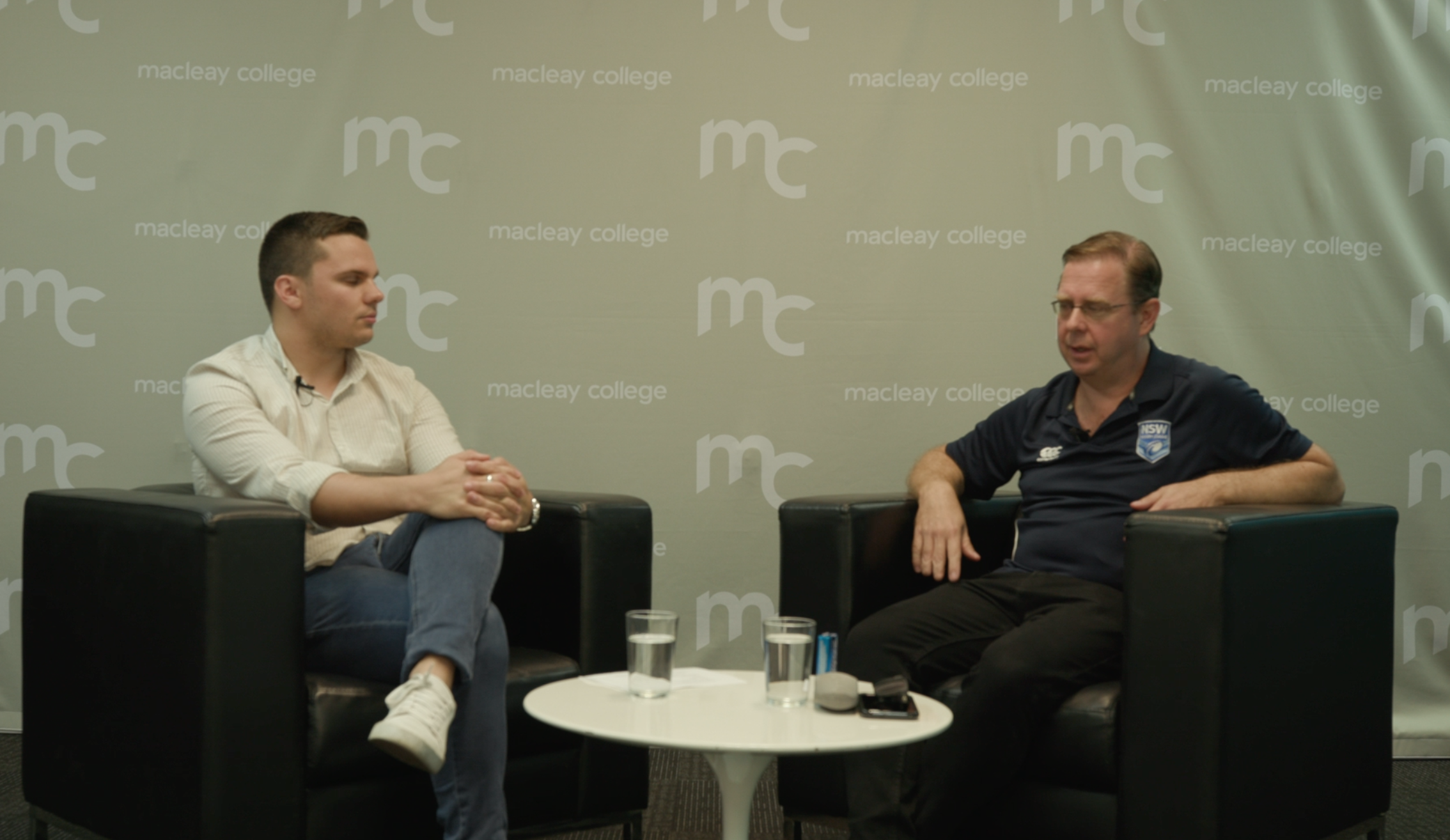Stuart Honeysett has sat on the back of fire trucks in the middle of bushfires, interviewed world-class celebrities and witnessed some of the greatest moments in Australian sporting history.
Yet the former journalist and Rugby League writer says the friendships he forged along the way are what he values most.
“I think one of the great things about a media career is that you build friendships that last you a lifetime,” Honeysett told students at Macleay College’s Sydney campus.
“You might not see people all the time, but talking to those guys today is exactly like 30 years ago when we started our careers.”
A senior NRL reporter at The Australian for more than 20 years, Honeysett has also survived the turbulence of the industry in recent years. After being made redundant, he reinvented himself as a digital journalist at Channel Nine’s Wide World of Sports, before taking on his current role of New South Wales Rugby League communications manager.

While covering the sport, he reported on boardroom politics, clubs going broke and legal cases, as well as live matches.
One particularly tricky professional dilemma he faced stemmed from rumours that Newcastle Knights players had misbehaved during celebrations after they won the competition in 1997.
His editor wanted to run the story and asked him to investigate the players’ “erratic behaviour”. However, Honeysett believed they had not done anything wrong and that the story had little merit. He was under pressure both from the players and his editor.
“I had to make a choice: did I want to do what I think was right, or do I keep my boss happy?
“I rang my boss and told her I wasn’t going to write it.”
Honeysett admits he was quite “cocky” when he started out as a journalist, but he believes that actually helped him in the early days.
“It can backfire against you but I think you need to be confident,” he said.
“I think also you need to be well-read. Particularly in those days, they could ask you questions about anything … It could be current affairs, it could be sport, it could be world politics.”
He also believes that “identifying your passion” is important for a young journalist. “That was something that came to me when I started working.”
As a Rugby League writer, Honeysett frequently found himself working under pressure. “I always used to say that … the worst four days of the year were [State of] Origin and the Grand Final.
“Because you’re writing to a deadline, and that’s enormously stressful because they [the sports pages] have to be sent to the printer at 10 o’clock and the game would finish at 10 o’clock.
“You have to think on your feet at those important times.”
Honeysett, who started out as a general news reporter in 1994, encourages young journalists to develop cross-platform skills that will allow them to adapt to different environments and roles.
When he was made redundant from The Australian, he had to acquire digital skills.
“I learnt the hard way,” he said. “Because I had done it [NRL reporting] for so long, it was very difficult for me to get back into the industry because I had been pigeonholed.
“Having a broad range of skills is important, and keeping an open mind, because that can carry you anywhere that you want to go.”
Looking back on his journalistic career, Honeysett said it was his passion for his job that had made it so special.
“My passion is rugby league, so I consider myself fortunate that I covered rugby league for a long, long time.
“I think when you’re passionate about your job, it doesn’t feel like a job – it’s fun to go to work.” – @andrecupido10


